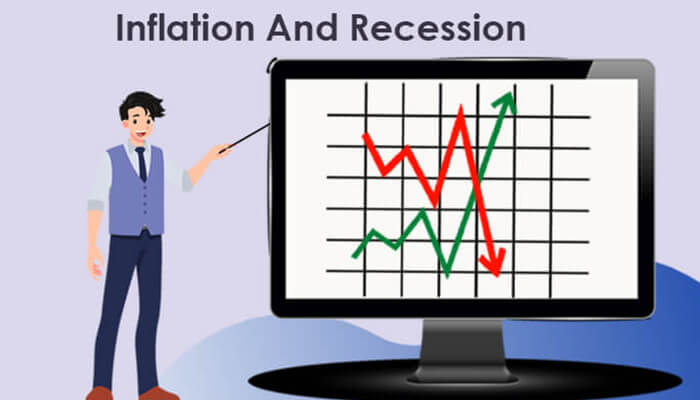Inflation is a rising cost of living and it lowers ROI investments for many businesses. It can come in many forms, including rising prices for goods and services, higher interest rates and a decline in the value of the dollar.
Inflation can be good for business because it causes consumers to spend more money, which in turn drives up demand for products and services. So, every business should see inflation as a business opportunity. But when inflation turns into a recession, it can have a devastating effect on your business.
Recessions are characterized by falling sales, higher unemployment and decreased investment spending.
There are many reasons why a recession and inflation is a great time to sell your business. The main reason is that businesses are looking for ways to cut costs. In this low-demand environment, it’s easy to make money as a seller.
Here Are 7 Steps To Turn Inflation And Recession Into Your Biggest Business Opportunity:
1. Accept the challenge
If you’ve been through a recession before and know what it feels like, you’ll understand that this is not something that will go away overnight. You must accept it as part of your future business plan and make adjustments accordingly.
2. Create a plan for growth
If you want to succeed in this new economy, you have to have a plan. The best way to do this is to think about how you can grow your business and make it more successful. You can’t just be a small business and expect things to happen. You need to take control of your own destiny and create a strategy for success.
3. Make sure your business is ready for the future
You also need to make sure that your company is ready for the future. It’s important that you know what steps you should take as a small business owner so that your business can continue on after the economic crisis has passed. This means that you need to look at what other businesses are doing and find out what they’re doing right or wrong so that you can learn from them instead of copying them.
4. Identify new markets
Identify new markets in which there is potential for growth for your business by learning about the latest trends in your industry and exploring new ways of doing things that have been successful elsewhere but has yet to be tried out in your own country or region. You can also benefit from looking at different industries around the world so that you can identify what works best for them before moving forward with any plans of expansion into new areas of operation or development of existing products or services
5. Be flexible with your pricing model
Inflation will cause food prices to go up at least 2% per year, so if you’re selling food items on Amazon then plan for this increased cost by increasing prices by 2% each year until you get back to normal levels. If it costs more than $10 to buy something from Amazon then mark it down from $20 to $15 so customers feel like they’re getting a deal even though they are paying less than they would have before inflation.
6. Get rid of all debt
Getting rid of debt is not an option; it’s a requirement. If you’re carrying any debt on your balance sheet, it needs to be completely paid off (including credit cards). The reason why is simple: if you can’t afford to pay off your debts with cash flow coming in from your business, then you will never be able to sustainably grow your business without going bankrupt or selling out early and taking a big hit on your equity investment.
7. Focus on making your products better than ever before
When people are struggling with their finances and inflation is taking its toll on their wages then they’ll be looking for ways to save money as much as possible. By offering products that have been made better than ever before then you can help customers save more money, even if it means that you have to raise prices slightly in order to make your margins larger than before



